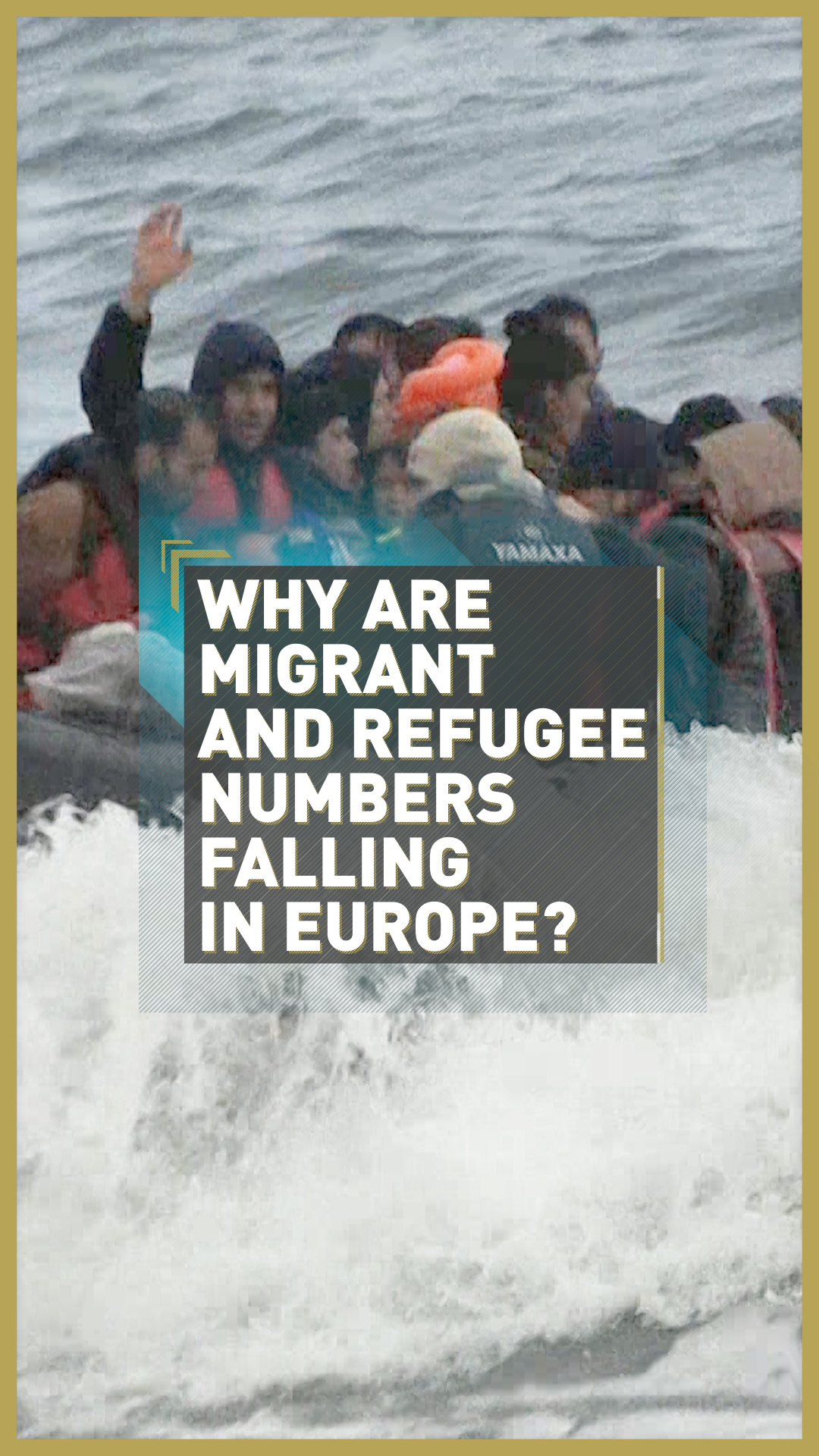02:48

In 2015, Europe was faced with a migrant and refugee crisis as more than a million people crossed into the continent as they fled war, poverty and human rights abuses in other countries.
More than 350,000 arrived from Syria as they escaped a civil war, while hundreds of thousands of others made the journey from Iraq and Afghanistan.
Migrants and refugees settled in countries across Europe. Germany received 475,000 asylum applications, while Hungary was the second most popular destination, where 177,130 people applied for asylum.
But five years on and the landscape is very different. Last year 123,663 migrants crossed into Europe, with numbers falling significantly each year since 2015. But why?

The pandemic and the tough stance adopted by several nations are among the reasons for the fall in migrant numbers. /AFP
The pandemic and the tough stance adopted by several nations are among the reasons for the fall in migrant numbers. /AFP
"There are a number of factors, it's a very complex situation," Shabia Mantoo, from the United Nations High Commission for Refugees, told CGTN. "This year there is a coronavirus pandemic which has affected movement, it's stopped daily life for most of us, but also affected movement among people.
"But also, there are other issues as well in terms of people being able to make those journeys either from their destination or transit countries. The situation has changed on the ground, the search and rescue capacity issues as well, so there are a whole host of different reasons."
So far this year 46,600 migrants and refugees have arrived in Europe, with most of them heading to Italy (19,339) Spain (13,982) and Greece (11,971) - but some countries have had enough.
This week, Greece announced that more than 10,000 migrants and refugees have been prevented from entering the country this year, prompting fears that they could be left stranded or sent back to the countries they have fled from.
Unfortunately, wars and persecution have not stopped. There are people in need who need safety and they need to be protected. So we are appealing for more solidarity and compassion.
- Shabia Mantoo, from the United Nations High Commission for Refugees has urged European countries to help.
"We know a significant proportion of people that continue to flee, they're fleeing war torn countries, they're fleeing conflict, persecution, instability," said Mantoo. "So we need that compassion, that solidarity.
"Unfortunately, wars and persecution have not stopped. There are people in need who need safety and they need to be protected. So we are appealing for more solidarity and compassion."
In 2020, 90 per cent of migrants and refugees making the journey to Europe have done so by sea, with one in ten journeys by land. The voyage is fraught with danger, with 495 people known to have lost their lives or been reported missing, leading to calls for safer pathways for those seeking asylum.
Mantoo added: "It's very risky and that's why we do need more of these safe and legal pathways."
In case you missed it:
-Footballer 'hacker' goes on trial after exposing alleged corruption
-Quarantine confusion in UK causing chaos for travelers
-EU lawmakers call for sanctions and inquiry into alleged poisoning of Russian politician Navalny